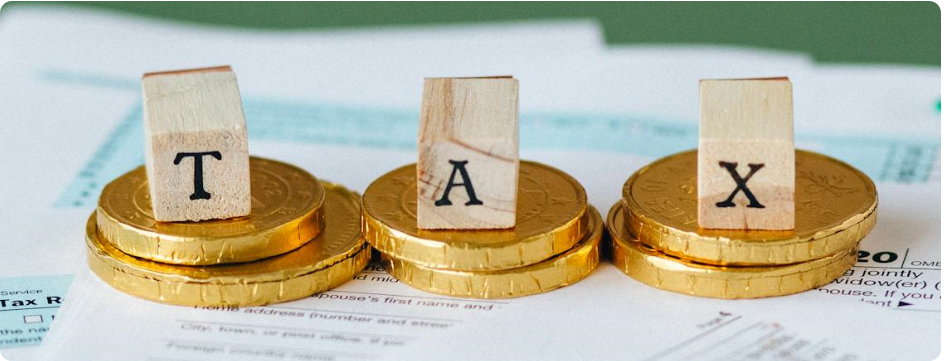Opinion Piece: The most Significant and Terrifying US Election Ever
A look at the US Election and what it means with Fintuity’s Director of Strategy, Ed Downpatrick.
Penning this piece at any moment before January the 20th 2021, the scheduled inauguration date for either the incumbent or the challenger, is almost redundant because of just how much in the way of sensational news there will be between now and then. Judging by the last week alone, we are in for a rollercoaster ride and one that’s missing a whole heap of brackets or maybe even the tracks. The President, having denied, dismissed, and downplayed the virus, contracts it, as do many of his staff after video footage emerged of an event for senior Republicans where few wore face masks and almost all chose to embrace one another. As it happens, many of those in attendance including a key member of Trump’s 2016 campaign team, New Jersey governor Chris Christie, since tested positive for the virus. Add to this Trump’s statement that when meeting the families of fallen servicemen shortly before testing positive, ‘they couldn’t resist hugging and kissing me because they just wanted to so much’, all without a mask, as well as his extraordinarily-rapid exit from Walter Reed Medical Centre under the explanation ‘I’m a perfect physical specimen, I’m extremely young, I just got over it, and I’m not contagious’, none of which chimes with either his or what is the reality for the 7.6 million Americans who have contracted the virus or for example, are old. We evidently have a slowly-smouldering bonfire onto which a seemingly-infinite amount of petrol can be poured.
Covid and the US Postal Service
Covid has changed the way people will vote and possibly how they will vote too. To set the wheels in motion, just be aware that the present administration has deliberately underfunded the US Postal Service (USPS). Did they have a crystal ball when so doing? Perhaps but probably not, but they will have known that should Americans choose to send to the polls rather than go to them, 60% of likely Democratic voters would mail ballot as opposed to 20% of likely Republican voters, creating a potential chaos of infrastructural ineptitude from which the President would be the obvious beneficiary. Bear this statistic in mind – the President won Pennsylvania, a key battleground state, by 2% in 2016. MSNBC, the news network, performed an experiment, all of which they filmed, to enter a USPS sorting centre in Pennsylvania in order to examine the state of affairs. Upon asking the assistant teller how many ballots they were currently holding, the teller replied ‘none’, but nervous on account of the TV camera presence, the manager promptly acknowledged they had received 100 ballots but only had possession of 97, a 3% cock-up. The President has even admitted to defunding the USPS so they can’t handle ballots for the election. Political chicanery of the highest order and tantamount to an electorate defrauded. Do we think the American people care about voter fraud and does the media? Well, if you need proof of journalistic motivation, in 1998 the Miami Herald went deep to uncover extensive voter fraud in mayoral elections and deep enough to see the result overturned. They won a Pulitzer Prize for investigative reporting in 1999.
Shaky Polls
The polls got it seriously wrong in 2016, with many simply unable to account for folks lying on the doorstep or over the phone about the fact they were actually, bashful as it may have made them feel, going to vote for a self-confessed pussy-grabbing, tax- and draft-dodger. No judgement or slander here, just facts. National polling at present has Biden anywhere between 12 and 6 points ahead of the President, but Biden’s campaign manager has been at pains to state to the American people that the polls are overblown and that Democrat supporters must not rest on such laurels and thereby not bother to vote, a phenomenon which may well have cost Hillary Clinton the nod in 2016. The polls had her so far ahead that many couldn’t see the point in turning out on voting day. She was a more divisive candidate than Biden, but we’ll let that lie considering she won the popular vote at a margin of 3 million from her opponent. The complacency of those who may not have wished to see
Trump in the White House, but couldn’t bring themselves to engage in a foregone conclusion might well have felt as miffed as those who assumed the UK would remain in the EU.
Battleground State Contestations and their Implications
There are 7 or 8 states which enjoy a bi-partisan legislature, among which are the battlegrounds of Wisconsin, Pennsylvania, and Michigan. Those three states mentioned possess Democrat Governors but Republican representatives in Congress and the Senate. Without going into the exhaustive minutiae of those implications, in a tight-run race there is every chance of contested ballots with both sides attempting to claim victory in the name of their party, nuts as that may sound. A state with a landslide winner clearly has a much easier time declaring for that candidate, the more so if the entire legislature is of the same party. If for example, it is abundantly clear that the President has won in Michigan, the Democratic Governor Whitmer is not going to challenge the result, but if Biden looks like he’s snuck it, but not by a compelling margin, the Republican representatives in the state may well reject their opponent’s ‘victory’ and attempt to claim it for their man, alleging miscounting or ballot tampering. The Supreme Court should intervene in cases such as these, but state legislatures are supposed to be endowed with sufficient powers not to need the intercession of the loftiest legislative branch in the land. Despite being stacked with 75% Republican justices, a record number of which were appointed by the President in just one term in office, the Supreme Court may use a time of political paralysis to bolster their own legitimacy by not giving in to the President, despite his claims that if he loses, it’ll be because of a deep-state conspiracy to rig the election against him. After all and not in his longer-term favour, the President has arguably served his judicial usefulness and the Republican party, tacitly supported by the Supreme Court, might just put their resources behind a more stable candidate, of which there is an ever-emerging stable, for 4 years’ time. A moment of sanguinity from the Republican party and power from its Supreme Court now, quite aside from breaking a nationally-harmful political stalemate, may help their cause after a single Biden term.
In the next piece, we’ll look at what could be the geopolitical fallout from the President’s constitutional brinksmanship and what an interim period of paralysis could mean for the rest of the world and also the US’s standing within it. A closer look at the polls in the narrow run-up to election day and which demographics have shifted away from the President since 2016 and who will turn out to vote in most meaningful number this time around. The President’s white, male, non-College-educated base may not be as solid as once it seemed, and the suburban college-educated women who turned out to vote for him over Hillary 4 years ago, unimpressed by what they see as his recklessness and misplaced machismo, may well be the ones to take the race away from him. As one such voter said after the first debate in which the President repeatedly interrupted his opponent and sought to bully him, “he reminded me of my first husband”.









